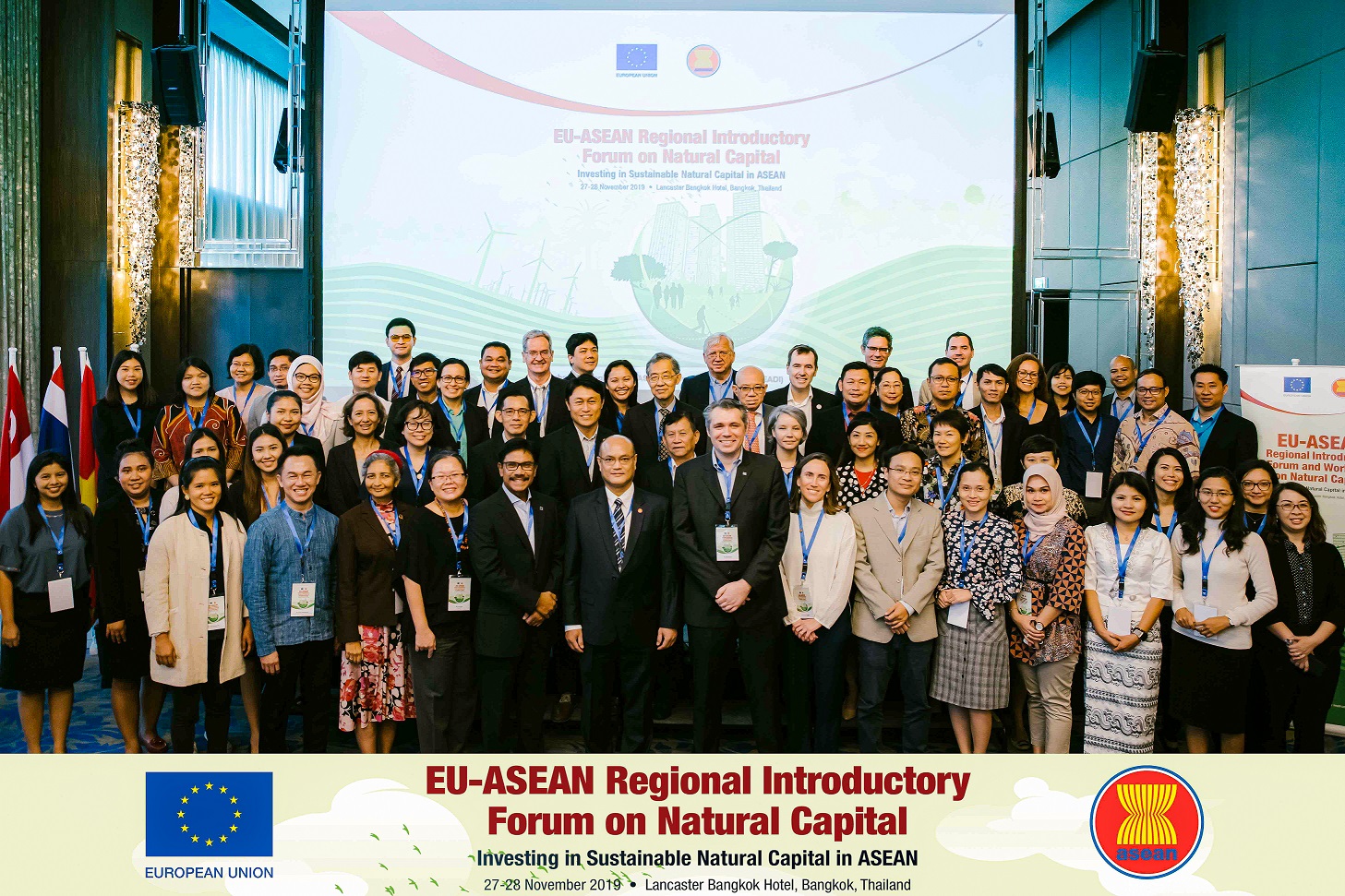
BANGKOK, 27-28 November 2019 The ASEAN Secretariat (ASEC) and the ASEAN Centre for Biodiversity (ACB) held a two-day introductory workshop on Natural capital in ASEAN in Bangkok. Supported by the Enhanced Regional EU ASEAN Dialogue Instrument (E READI), the workshop facilitated a dialogue between EU and ASEAN on tools and narratives for the integration of natural capital in related decision-making.
The ASEAN region is known for its rich natural resources and biodiversity. Over the years it has become vulnerable as a result of ecosystem degradation, marine debris, water and air pollution, and climate change.
There is a need for governments, industries, and private sectors to better value biodiversity and strengthen natural capital, and mainstream them into development and investment, said Dr. Vong Sok, Head of Environment Division of the ASEAN Secretariat.
Meanwhile, awareness on how businesses and communities affect the world s stocks of natural assets remains relatively limited.
Marta Santamaria, Policy Officer of the Natural Capital Coalition, explained: Impacts and dependencies on natural capital create both costs and benefits, not only for businesses but also for society.
She further added, These are transferred as risks and opportunities that businesses need to manage more carefully. Natural capital integral accounting approaches can help businesses and policy makers seize the magnitude and value of ecosystem services, so as to take better decisions and limit risks.
In a peer-to-peer setting, EU counterparts shared best practices to create greater value from nature-based solutions and become more efficient.
Following the workshop, a draft of the ASEAN Natural Capital Road Map will be prepared in close consultation between the European Commission and ASEC. The road map aims to clarify how the European Union, Natural Capital Coalition (NCC), ASEC, UN Environment Programme, ASEAN Member States (AMS), and other international organisations could contribute to the establishment of a regional Natural Capital Platform. A first draft could be discussed at the EU-ASEAN High Level Dialogue in the summer of 2020.
Michael Bucki, EU Counsellor for Environment and Climate Change to Indonesia, Brunei Darussalam, and ASEAN concluded: Accounting for natural assets and associated ecosystem services helps countries and businesses to assess risk and to optimise value, but also to realise the magnitude of their dependence on increasingly scarce resources, renewable or not.
The event is part of a series of dialogues between the European Commission and ASEAN on environment and climate change. It brought together sixty-five representatives from the ASEAN Working Group for Nature Conservation and Biodiversity, related ministries from the AMS, the NCC, UNEP, ASEC, ACB, Civil Society Organizations (CSO), the private sector, think tanks and universities, and EU Delegations from Bangkok and Jakarta.
_____________
The Association of Southeast Asian Nations (ASEAN) was established on 8 August 1967. The ASEAN Member States are Brunei Darussalam, Cambodia, Indonesia, Lao PDR, Malaysia, Myanmar, Philippines, Singapore, Thailand and Viet Nam. On 31 December 2015, the ASEAN Community was formally established. The ASEAN Secretariat is based in Jakarta.
The European Union (EU) is a political and economic union of Member States including Austria, Belgium, Bulgaria, Croatia, Republic of Cyprus, Czech Republic, Denmark, Estonia, Finland, France, Germany, Greece, Hungary, Ireland, Italy, Latvia, Lithuania, Luxembourg, Malta, Netherlands, Poland, Portugal, Romania, Slovakia, Slovenia, Spain, Sweden and the UK.
The Enhanced Regional EU-ASEAN Dialogue Instrument (E-READI) is a development cooperation program that facilitates cooperation and dialogue between the EU and ASEAN in policy areas of joint interest. Drawing on the EU s experience of regional integration, the E-READI policy dialogue facility further strengthens both the ASEAN regional integration process as well as the overall ASEAN-EU partnership.
For more information, please contact:
EU Mission to ASEAN, Programme Manager, Pierre Destexhe Pierre.DESTEXHE@eeas.europa.eu
E-READI, Communication & Outreach Expert, Denada Stottele denada.stottele@asean.org
ASEAN Secretariat, Community Relations Division, Romeo Arca, Jr. romeo.arca@asean.org






